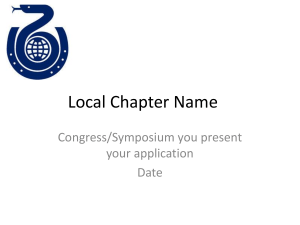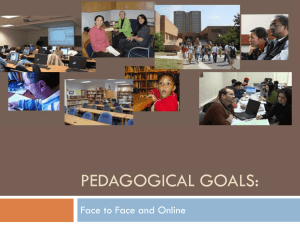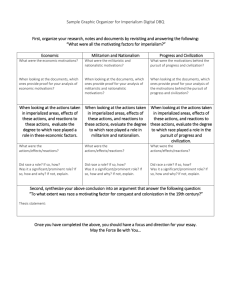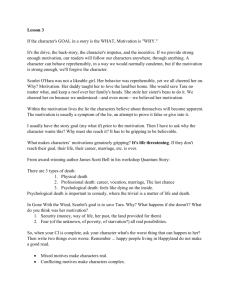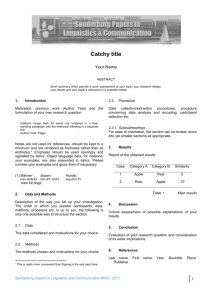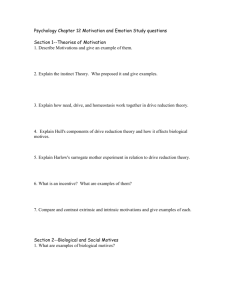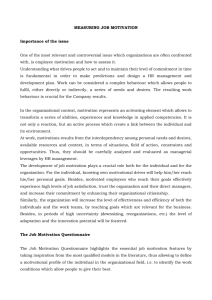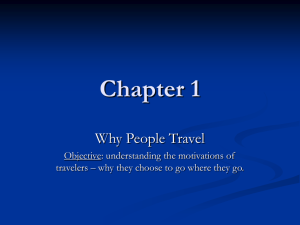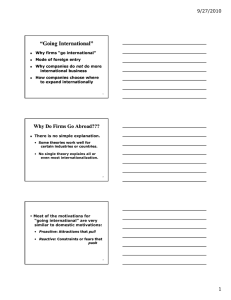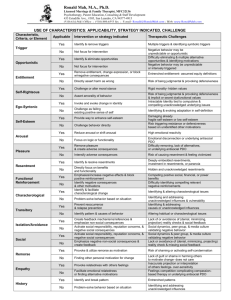Centre for Computing in the Social Sciences
advertisement
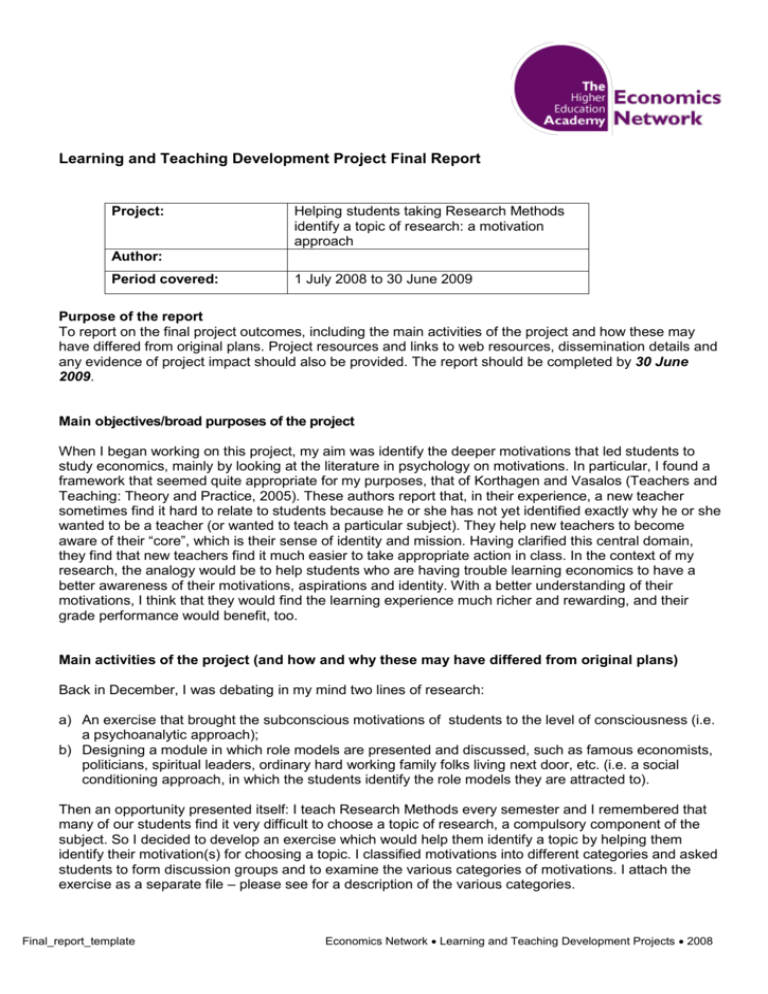
Learning and Teaching Development Project Final Report Project: Helping students taking Research Methods identify a topic of research: a motivation approach Author: Period covered: 1 July 2008 to 30 June 2009 Purpose of the report To report on the final project outcomes, including the main activities of the project and how these may have differed from original plans. Project resources and links to web resources, dissemination details and any evidence of project impact should also be provided. The report should be completed by 30 June 2009. Main objectives/broad purposes of the project When I began working on this project, my aim was identify the deeper motivations that led students to study economics, mainly by looking at the literature in psychology on motivations. In particular, I found a framework that seemed quite appropriate for my purposes, that of Korthagen and Vasalos (Teachers and Teaching: Theory and Practice, 2005). These authors report that, in their experience, a new teacher sometimes find it hard to relate to students because he or she has not yet identified exactly why he or she wanted to be a teacher (or wanted to teach a particular subject). They help new teachers to become aware of their “core”, which is their sense of identity and mission. Having clarified this central domain, they find that new teachers find it much easier to take appropriate action in class. In the context of my research, the analogy would be to help students who are having trouble learning economics to have a better awareness of their motivations, aspirations and identity. With a better understanding of their motivations, I think that they would find the learning experience much richer and rewarding, and their grade performance would benefit, too. Main activities of the project (and how and why these may have differed from original plans) Back in December, I was debating in my mind two lines of research: a) An exercise that brought the subconscious motivations of students to the level of consciousness (i.e. a psychoanalytic approach); b) Designing a module in which role models are presented and discussed, such as famous economists, politicians, spiritual leaders, ordinary hard working family folks living next door, etc. (i.e. a social conditioning approach, in which the students identify the role models they are attracted to). Then an opportunity presented itself: I teach Research Methods every semester and I remembered that many of our students find it very difficult to choose a topic of research, a compulsory component of the subject. So I decided to develop an exercise which would help them identify a topic by helping them identify their motivation(s) for choosing a topic. I classified motivations into different categories and asked students to form discussion groups and to examine the various categories of motivations. I attach the exercise as a separate file – please see for a description of the various categories. Final_report_template Economics Network Learning and Teaching Development Projects 2008 Outcomes of the project I asked each group leader to present his or her group’s findings in class and to send me a summary of the findings. I also distributed a set of questionnaires, and received 50 responses. As a measure of overall satisfaction with the exercise, 43 students said that the exercise should be offered to students taking the same subject in the next semester, 5 said they were not sure if it should be offered, and 1 said it should not be offered (1 student did not respond to this particular question). On average, prior to taking the exercise, students had “some idea, but only vague” of what research topic to choose; again on average, students found the exercise “fairly helpful”. The category of motivations which students felt was most useful in helping them select a topic was “self-development”, and the least useful was “altruism”, though in fact the differences in rankings between motivational categories were fairly small. I am quite encouraged by the responses of the students and would like to continue exploring this line of research. A possible experiment is to split the Research Methods class into two groups, and to conduct the motivations exercise with one group and not the other. It would then be interesting to see if the group that has been exposed to the motivations exercise achieves higher grades than the group that has not been exposed (there are issues of ethics here, however, that need to be addressed: the expectation is that one group will be empowered to achieve higher marks than the other group, raising a question mark about discrimination; I can see ways around this but this is not the appropriate place to deliberate on this issue). Available resources (including web links) None as yet, but I would be happy to provide if the Economics Network would like me to. Dissemination (details of events, dates etc disseminated and planned) I will present a more detailed version of the findings of the exercise at the forthcoming DEE Conference in Cardiff (for example I would like to regress student satisfaction on various factors identified in the questionnaire) Impact (please include any evaluation data or any other evidence of the project’s impact) Please see section on outcomes above. Final_report_template Economics Network Learning and Teaching Development Projects 2008
